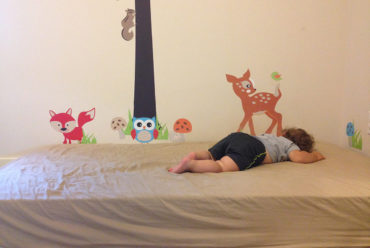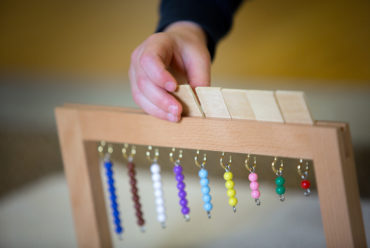Set Goals with Your Child the Montessori Way
As adults we naturally set goals for ourselves throughout our lives, but never more so than at this time of the year. We understand that working toward a goal is an effective way to improve ourselves. Children set goals as well, but they do it as a natural part of the growing up process; children call them ‘dreams’. These ‘dreams’ allow them to gain self-confidence, begin to define themselves outside of parents’ norms and expectations, and challenge themselves toward positive change. Maria Montessori described them as a vital force that is active in every individual and leads them towards their own evolution.
The simplicity and growth that transpires from goal setting can be found in these three key ideas.
- Define attainable and realistic goals.
Take the time to help your child define the goal in a realistic manner, keeping it to a sentence or two, and most importantly, keep it attainable. When a child of any age, elementary through adolescence, is able to identify a target, create steps toward it, and successfully achieve it, that child also attains an increased sense of self-efficacy. With this comes a sense of having control over one’s direction, impact and role in the world and a naturally increased sense of self-confidence. This is what both, Maria Montessori and we want for our children. - Allow your child to set goals that will shape their identity.
When children get a bit older, and have mastered the basic understanding of setting achievable goals, goals take on the role of helping the child to bridge the span of childhood to adulthood and step beyond the their childhood world, the confines of parental expectations, and finally into the identity they craft for themselves. Start setting goals early with your child and help them to plan out their dreams for the future. - Support them along their journey.
Sometimes, goals can be difficult for parents to support, as they may be disparate to family-held traditions or norms. A child may decide at this stage to travel long distances or for long periods, take on a new hobby, or go to a college that isn’t what the parents had planned for or expected. When your child’s goal is contrary to what you chose for yourself, understand that the confidence that you instilled in him/her is good. This development is normal, and, though it may be difficult for you, allowing your child to create that identity for him/herself, as long as the goals are healthy and positive, is the role you must now adopt.
Children’s goals are not only challenging for parents, but for the children as well. A goal, by its very nature, should be set up to be somewhat beyond the current state of the individual. It should stir in the child, a will to make change, and change doesn’t come easily for anyone. When a child is able to meet an obstacle, persevere through it, or have to create an alternate plan to achieve the goal, he or she is learning critical processes for success in all things.
Challenges to goals exist in many forms, some more manageable and less poignant than others. The degree of the challenge will bring out that level of determination in the child; at this point the child must put forth additional effort, push beyond current mindset, and ‘do the hard thing’ to achieve his/her goal. Children, for this reason, especially require the buy-in of parents during these challenging times. Displaying the written goal, reminding your child of the hoped-for end result, and verbally pointing out observations about progress are all ways that parents can be invaluable during the difficult stages of working toward a goal.
As your family is reflecting on the past year, and looking toward growth opportunities for 2015, be an advocate for the goals set by your children. Invest yourself in their process of self-improvement as well as your own. The sense of community and support that your child feels from you at the outset of the process will create in him/her an increased motivation for achievement. Goals are set for the purpose of self-improvement, and sharing that purpose amongst those within your home is one of the greatest rewards of being family.










No Comments